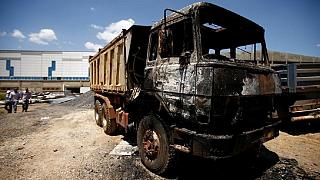The announcement of a 6-month state of emergency is not the way to quell anti-government protests in the Oromia region of Ethiopia according to international rights group, Human Rights Watch (HRW).
This view was contained in the
Dispatches series by HRW’s senior researcher for the Horn of Africa, Felix Horne. He expressed fear at the possible deployment of military under the state of emergency – a situation likely to escalate the protests.
‘‘Now, under the state of emergency – declared on state television – the army will be deployed country-wide. Intensifying the military’s role in responding to the protests is sure to fuel the escalating anger in Oromia.
“ The government’s announcement indicates that it does not intend to reverse course, away from the use of force and towards engagement with communities about their grievances. ”
‘‘The government’s announcement indicates that it does not intend to reverse course, away from the use of force and towards engagement with communities about their grievances,’‘ he said.
According to HRW, the state of emergency points to the resolve of the government to ‘‘use force to suppress free expression and peaceful assembly.’‘
The group declared that the country has had a bloody year so far with the latest being the death of – possibly hundreds – who died during a stampede at the Irreecha festival in Bishoftu, in the restive Oromia region.
HRW insists that the stampede of October 2, was as a result of gunfire and tear gas fired by the security details. The government put the death toll at over 50. The Prime Minister, Desalagn Hailemariam, has however admitted that the overall death toll since November last year could be over 500.
German Chancellor Angela Merkel, has tasked the government to allow protests in the country and also that the police must be proportionate in their response to protesters. The PM has also said there are plans for political reforms to allow greater participation in the political process.
‘‘Until Ethiopians can voice their views about critical issues such as development and governance, anger and frustration will likely continue, plunging the country into further uncertainty and possibly toward an even more dire and irreversible human rights crisis,’‘ the HRW concluded.

No comments:
Post a Comment